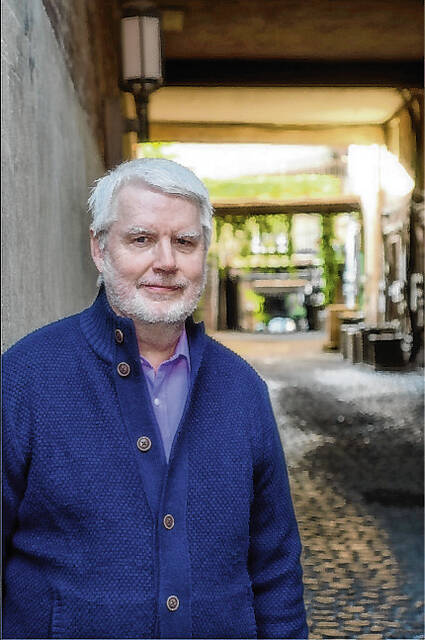As I expected, my Facebook post on Jan. 13 received a variety of responses.
The post read: “I’M JUST GOING TO COME OUT AND SAY IT. Racism and the refusal to face up to racism’s place in our history is THE spiritual crisis of our time. The hardest task the Biblical prophets faced was to convince the people who claimed to be God’s followers that the only remedy for sin and the only path to healing is confession (admitting the truth) and repentance (desire to change).
Closer to our own age, the Austrian martyr Franz Jägerstätter had a dream in the early 1940s of happy Germans and Austrians boarding a train on a beautiful sunny day for an outing. When he awoke, Jägerstätter realized that his dream was a message from God. The train was Nazism and the people on it were heading for hell.
In our day, many religious Americans want to prevent the truth of our past and the persistence of systemic racism being discussed and taught. What if this denial is our train that will take us to hell?
I’m pretty convinced that at the gates of hell, church membership isn’t going to cut it. You see, God has always known that Black Lives Matter. And systemic racism isn’t a new issue for God, nor is racism a taboo topic for God. Why are we making the truth taboo for us and our children?”
Of all the responses that I received, the one that most intrigued me came from a close friend, who wrote: “If god knew that BLM…….it sure took him a long time to do anything about it!”
When I first read my friend’s response, I was tempted to be defensive, to remind him of the leading roles that people of faith have played in the struggle for racial equality. From the earliest days of the Abolitionist movement to the Civil Rights Movement of the 1960s, religious leaders have been in the forefront of the march for justice. And all of those religious leaders were convinced that they were responding to God’s call.
But if my friend doesn’t speak the whole truth about racism and God, he speaks a truth that can’t be denied. Over the centuries, God’s name has been used to enslave, colonize and justify oppression. Today, some of the most virulent opponents of confronting racism are regular church attenders.
However, there is another way to think about God and racism, one that links those who believe in God and those who do not. What we can agree on is that there are moments in history that are moments of greater significance. These are moments of decision, moments of consequence.
A technical religious way of describing these times of decision is to call them kairotic, those moments when a people or nation stands in a special way under the judgment of God. Humanists might be more comfortable saying that there are moments when a people or nation is under the judgment of history. What humanists and believers in God can agree on is that these moments offer a window of opportunity, a chance for deep change.
We are currently experiencing kairotic time in America, and our future as a nation will depend on how we respond to this moment. It is ironic that in a month labelled Black History month, some in our country want to silence all talk about racism. In a month when we celebrate Martin Luther King’s birthday, some people want their children to grow up ignorant of what this man and others fought for and are still fighting for.
Over the last few years, we’ve experienced so many tragedies that remind us that our nation has a disease, a cancer. Yes, we’ve had the disease of racism since 1619, the year the first slaves arrived on our shores. But the signs are everywhere, from those who want to silence all talk of race to those who are tired of being penalized for an accident of birth, that the pressure surrounding race now is higher than it has been since the mid-sixties.
I believe if Martin Luther King Jr. were alive today, he would say that the cancer of racism is treatable, that the window of opportunity is still open. But God help us if we let that window close.




